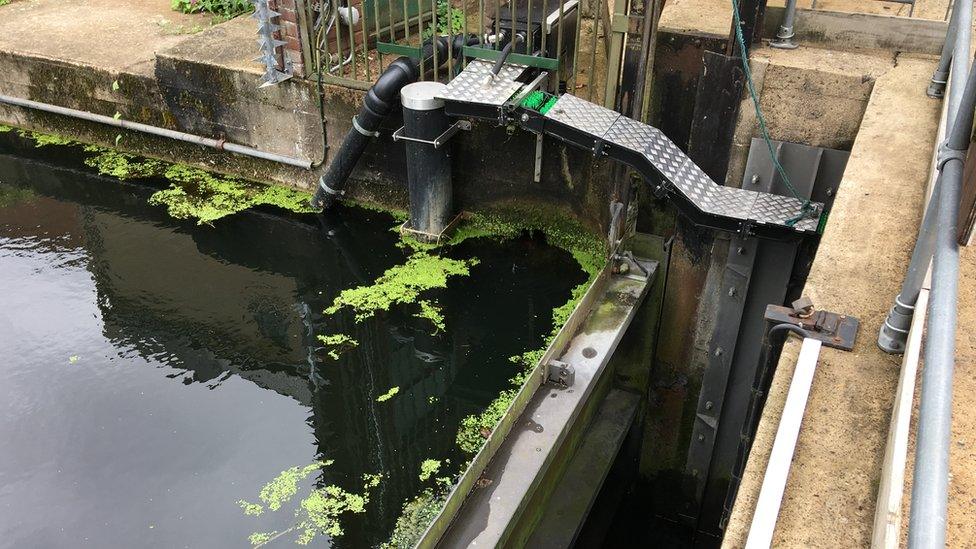Scientist hopeful for eel's future as Ely celebrates
- Published
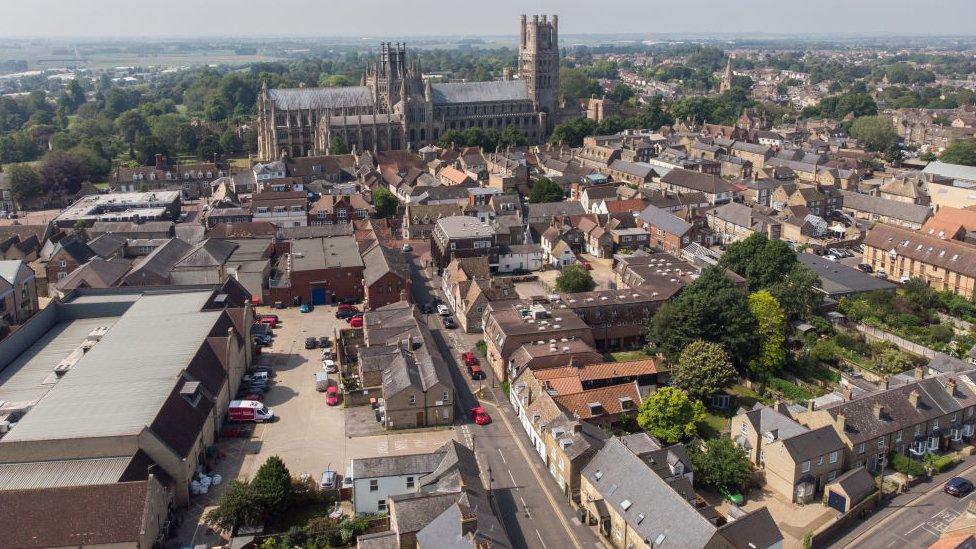
The Cambridgeshire city of Ely takes its name from the freshwater fish living in the surrounding waterways
As Ely in Cambridgeshire celebrates its annual Eel Festival this weekend, what is the future of the now critically endangered fish that provided the city with its name?
Eels are not found in Cambridgeshire's River Great Ouse in anything like the numbers they once were.
Historically, the fish was a staple of the local diet, as well as providing a valuable source of income for the fishing industry.
That was in a large part due to the popularity of jellied eels as a dish, with clients regularly travelling to Ely from around the country to sample it.
From Saturday to Monday, the city will celebrate that heritage at its annual Eel Festival, external with a series of events, including stalls, re-enactments, singing and dancing.
But stocks in the River Great Ouse, external have now dwindled and the city's last commercial eel catcher retired in 2014.
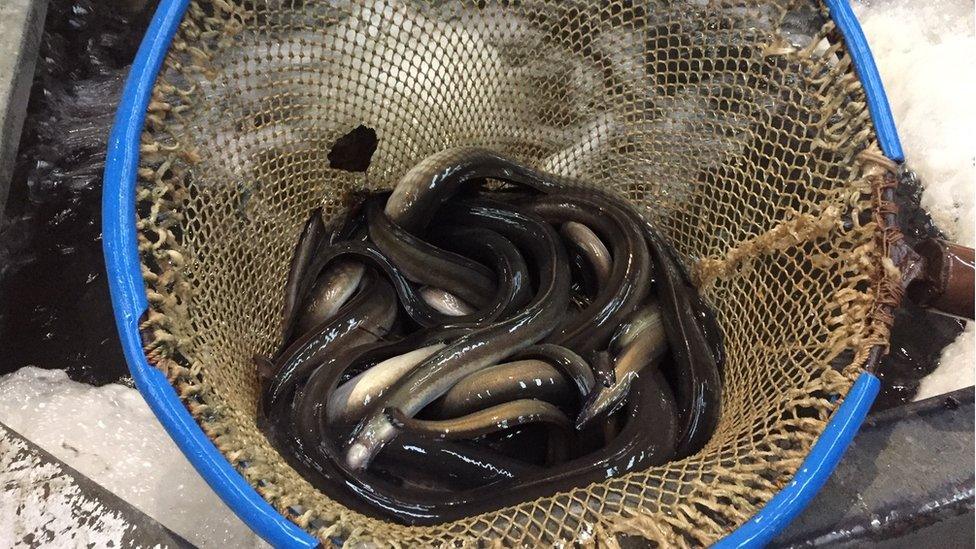
The last commercial eel catcher in Ely retired a decade ago
Populations of the European eel, seen as an important indicator of waterways health and freshwater habitats, have been declining for decades and the fish is a classed as a critically endangered species, external.
Attempts have been made to boost numbers with conservation plans put in place., external by the Department for Environment and Rural Affairs.
In 2022, the Environment Agency said it had recorded 74,000 eels passing through a monitoring station, external on the River Great Ouse.
Scientist David Righton, who studies the fish, said he was hopeful about its future.
European Union regulations aimed at protecting eel stocks, which have fallen 95% since the 1980s, came into force nearly a decade ago.
Dr Righton works for the Centre for Environmental Fisheries and Aquaculture Science (Cefas), which has a base in Lowestoft, Suffolk.
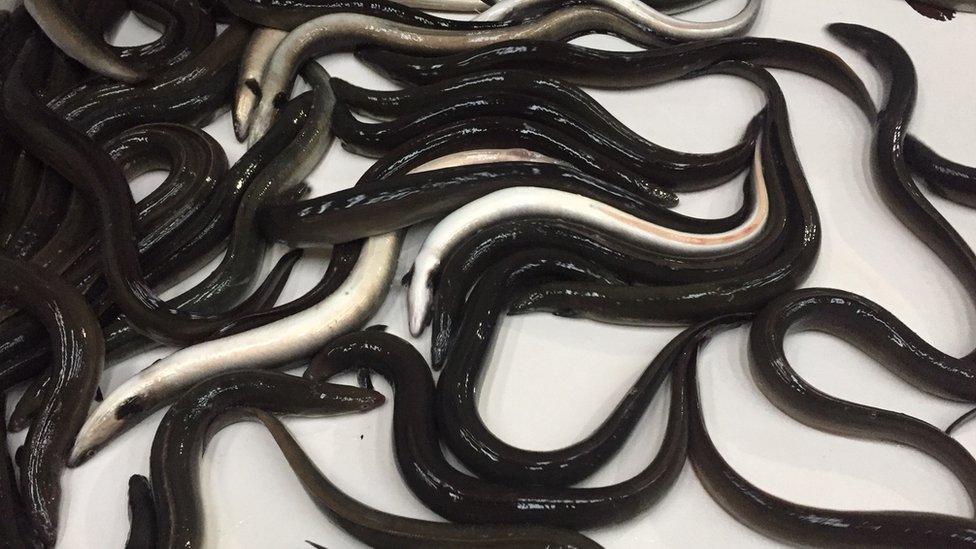
A scientist says he is optimistic for the survival of the endangered European eel
Dr Righton said: "There have been many ecological changes and fluctuations in the course of their evolution.
"Over time they have endured a range of very significant ecological changes on a large geographic scale.
"They are a very resilient species on a day-to-day level. They can survive a very wide range of conditions and are very tolerant to many different environmental extremes."
Dr Righton also said eels could live for a "very, very long" time and had a "complicated" life cycle.
"There are tales of eels that have lived over 100 years," he said.
"They tend to be very long living as a freshwater fish species in general."
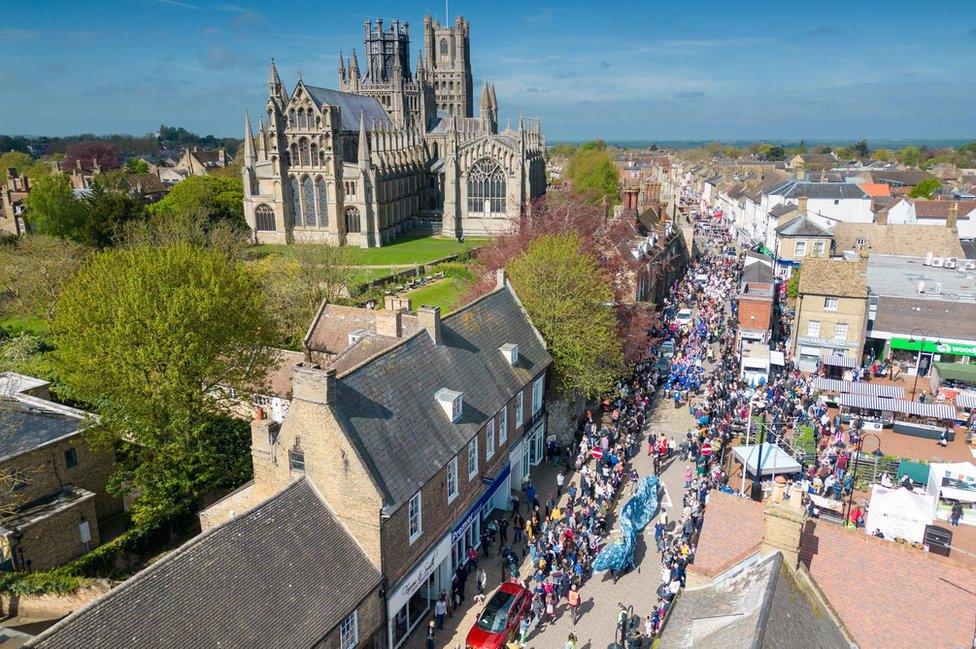
The Eel Festival is held annually in Ely
Dr Righton said the Defra's eel management plan gave hope for the fish.
"The eel management plan is set up to last for decades and the recovery is expected to last for decades, rather than to see an effect very quickly," he said.
"I still have a sense of optimism. We have got the right plan in place.
"We may start to see positive change in the next 20 years."
Dan Hayter, an eel specialist at the Environment Agency, outlined some of the difficulties eels faced - and some of the work being done to protect them.
In an online blog, external, he said barriers, weirs and sluices were problematic for eels as they disrupted the natural flow of rivers and could prevent or slow migration.
Loss of habitat was another factor.
He said there was less wetland and floodplain "connectivity".
Eel "passes" had been created, he said, to help eels get from the sea into the freshwater habitats and then back again as adults,
Mr Hayter said pumping stations could be very damaging.
"The Environment Agency is involved in many natural flood management projects which reduce flooding for people but also improve the habitat for the eels, whilst improving biodiversity," he wrote.

Got a story? Email eastofenglandnews@bbc.co.uk, external or WhatsApp 0800 169 1830
- Published9 June 2023
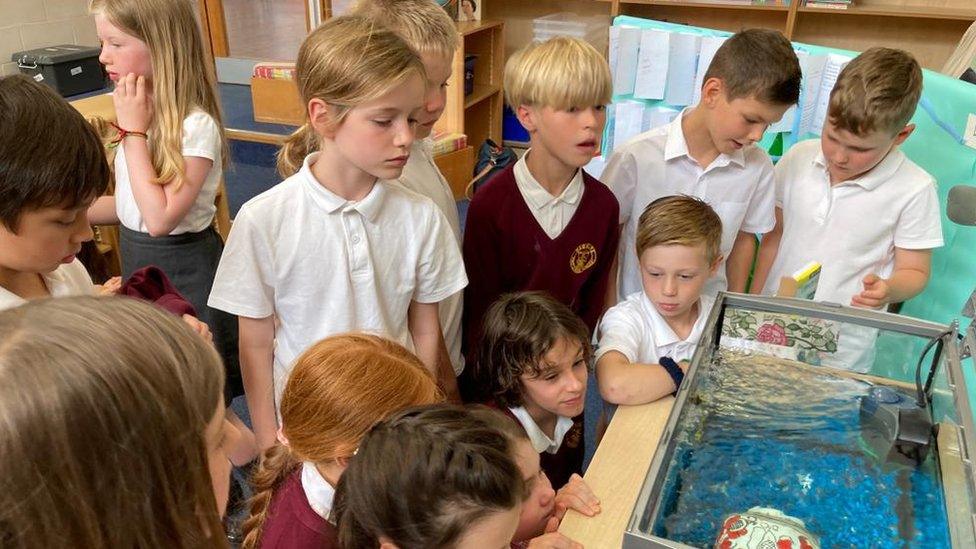
- Published4 August 2019
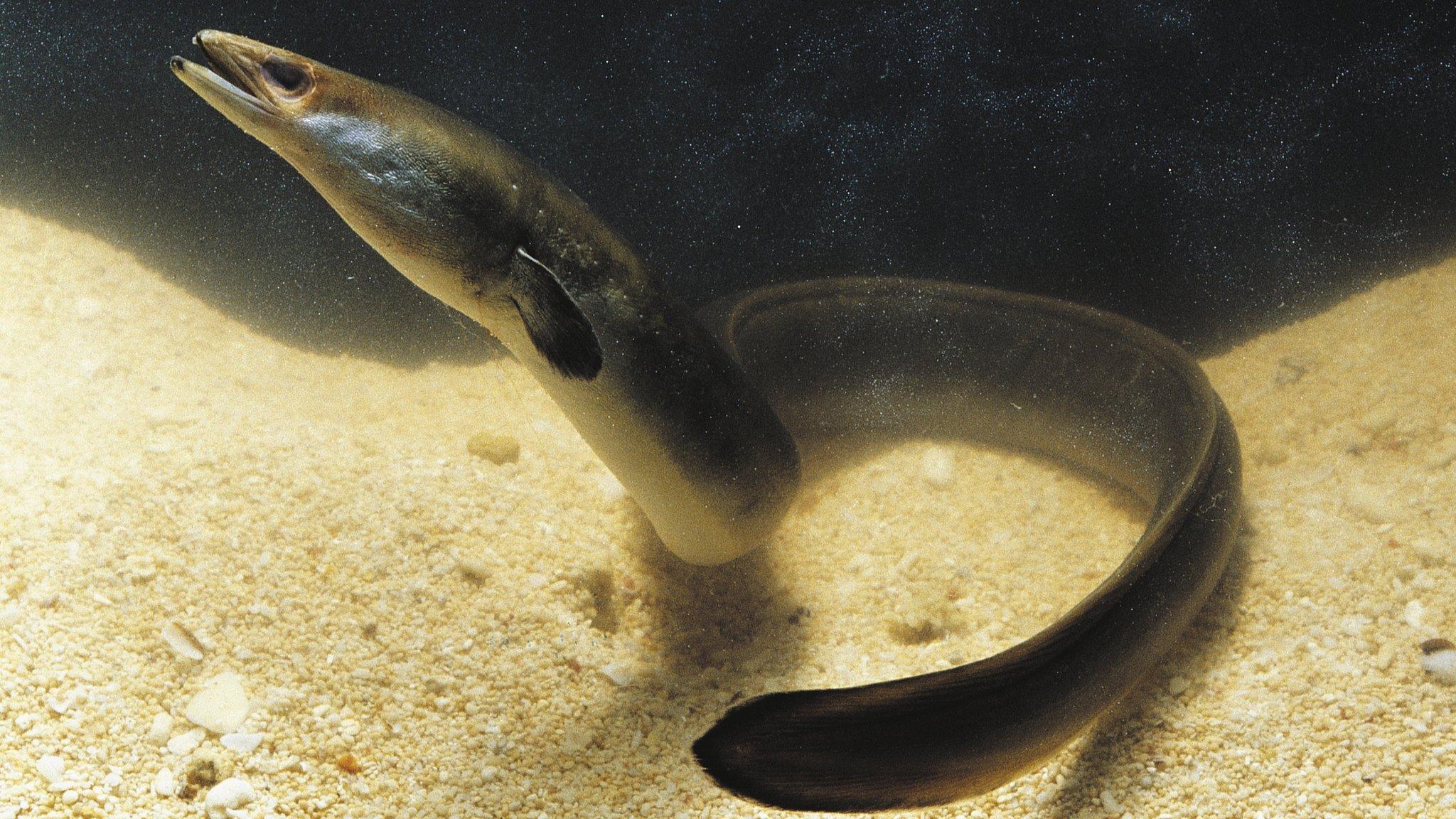
- Published17 May 2019
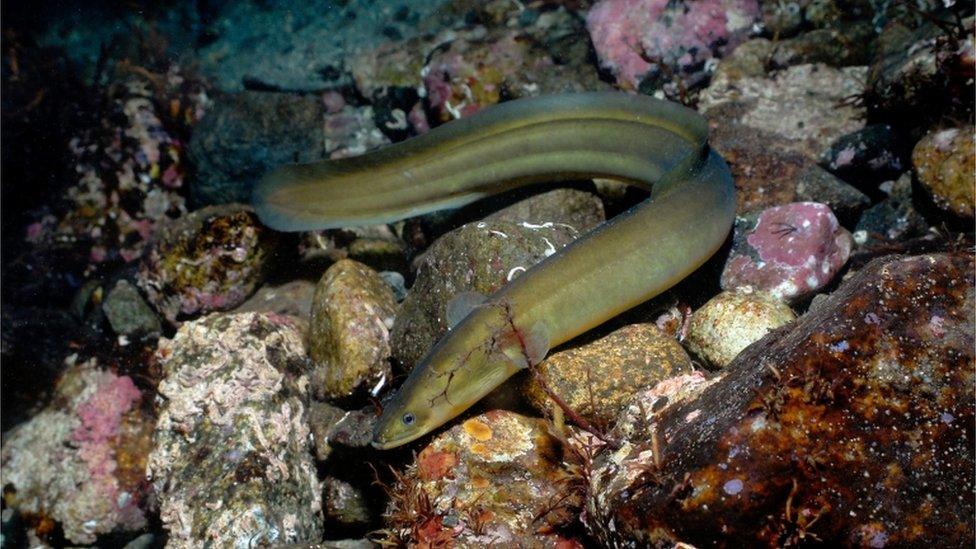
- Published9 August 2017
